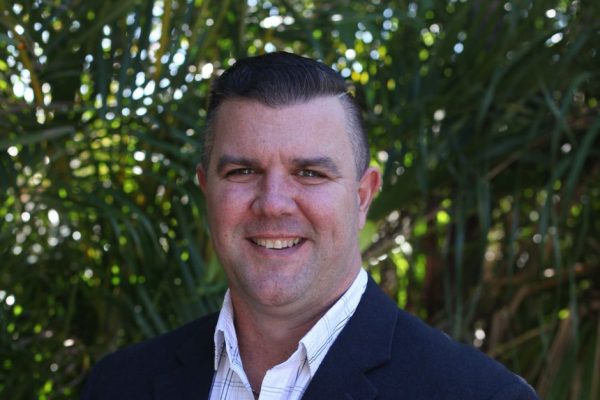Welcome to Refinery Life Australia.
This week we continue our series from the book of James titled The practical Expression of Our Faith in Daily Living.
Today we are talking about Who Is a Sinner?
Text
James 4:17 AMP
17 So any person who knows what is right to do but does not do it, to him it is sin.
Scripture Reading
James 4:11-17 (AMP)
11 Believers, do not speak against or slander one another. He who speaks [self-righteously] against a brother or judges his brother [hypocritically], speaks against the Law and judges the Law. If you judge the Law, you are not a doer of the Law but a judge of it.
12 There is only one Lawgiver and Judge, the One who is able to save and to destroy [the one God who has the absolute power of life and death]; but who are you to [hypocritically or self-righteously] pass judgment on your neighbor?
13 Come now [and pay attention to this], you who say, “Today or tomorrow we will go to such and such a city, and spend a year there and carry on our business and make a profit.”
14 Yet you do not know [the least thing] about what may happen in your life tomorrow. [What is secure in your life?] You are merely a vapor [like a puff of smoke or a wisp of steam from a cooking pot] that is visible for a little while and then vanishes [into thin air].
15 Instead you ought to say, “If the Lord wills, we will live and we will do this or that.”
16 But as it is, you boast [vainly] in your pretension and arrogance. All such boasting is evil.
17 So any person who knows what is right to do but does not do it, to him it is sin.
Prayer
In Jesus name we pray.
Amen.
Introduction
There are two kinds of sinners in the world.
First, there are those who reject Jesus Christ and consequently dwell in spiritual darkness.
Among these, there is extreme divergence.
Some are openly defiant and hostile toward God, while others are passive and even apparently kind toward Christianity.
Second, there are those who are “saved by grace.”
They are clothed in the righteousness of Jesus Christ, and when God looks on them, He sees them secure under the blood of His Son.
Yet these believers in the Lord Jesus still live in unredeemed bodies and therefore fight a continual lifelong battle with temptation and sin.
These are the kind of sinners James was talking about in our text.
He was describing Christians who fall victim to sin.
- James depicted the Christian who criticises the Christians in verses 4:11-12.
- In addressing the need for Christians to permit God to humble them, James mentioned how those who have won some victory may become proud and arrogant in their attitude toward other Christians.
They allow satan to worm his way in, and they find themselves “evaluating” the lesser victories of their brothers and sisters.
The position of victory is often more dangerous than the position of defeat.
B. James was not talking about the fools who irresponsibly criticise everybody but themselves.
He was speaking of those who are so wise in their own conceit that when it comes to others, they are not able to exercise good judgement at all.
Some Christians have come to think so highly of themselves that when they speak of others, criticism and devaluation become automatic.
C. James enforced his command by reminding us of two facts.
- Those who are guilty of slandering others, “speaks against the Law and judges the Law.)
They set themselves above the law of God and count it unworthy of their obedience.
2. Verse 12 There is only one Lawgiver and Judge, the One who is able to save and to destroy.
In other words, God is the one who holds the final judgement.
2. James edicts those who arrogantly disregard God in verse 4:13.
- Actually there are three areas of human disregard.
- Verses 1-10 show human disregard for God in preference for the world and the pleasures of the world.
2. Verses 11-12 show the human disregard for God in judging fellow Christians.
3. Verses 13-17 show the human disregard for the Providence of God.
Humans, in their pride, do not want to acknowledge that they cannot determine their own fate and make their own plans.
B. Notice James’s illustration.
He said that those who make plans without God say, in verse 13, “Today or tomorrow we will go to such and such a city, and spend a year there and carry on our business and make a profit.”
Certainly profit making is essential in any business, but when it becomes a passion and the motivation behind all our activities, we are on dangerous ground.
C. Why is it wrong to let the profit making motive become a consuming passion in our lives?
James told us in verse 14, Yet you do not know [the least thing] about what may happen in your life tomorrow.
Humankind stands between the past and the future, and when we refuse to trust God with our tomorrows, we are torn between the memory of the past and the ignorance of the future.
D. What are the lessons to be learned from these facts?
- We should take full advantage of today and its opportunities.
2. Our ignorance of what tomorrow holds does not mean that we should not think about tomorrow and make provisions for it.
Most of the duties for which God holds us responsible call us to work for tomorrow.
3. James depicted the mystery of life in verses 4:14-15.
- Here is one of the greatest questions ever asked.
What is your life?
James’s answer is profound in verse 14, You are merely a vapor [like a puff of smoke or a wisp of steam from a cooking pot] that is visible for a little while and then vanishes [into thin air].
He was illustrating the swiftness and transitory nature of life.
B. The great tragedy is that most people confuse life with the circumstances of life.
Life is largely independent of its circumstances.
A person may be rich yet unhappy or poor yet happy.
A person may be in prison yet sing, as Paul and Silas, while another may be free yet sad and depressed.
C. James’s meaning is that when we are fully aware of our duty yet fail to perform it, we sin.
It is not enough to know to do right, we must do what we know we ought to do.
James was talking about sins of omission.
Conclusion.
When emperors were crowned in biblical times, the royal mason would set before the emperor a certain number of marble slabs.
The new emperor was to choose one of these for his tombstone.
The point of this custom was for the new emperor to realise that he would do well at his coronation to remember his funeral.
Life is time, and the purpose of time is to prepare for eternity.
There is no more profound question in all of Scripture than this one that James placed before us, Who is a sinner?
May God help us consider that question with soberness.
Until next time
Stay in the Blessings
I really want to encourage you to be diligent with your Bible study time, because God has so much more for us than we can get from just going to church once or twice a week and hearing someone else talk about the Word.
When you spend time with God, your life will change in amazing ways, because God is a Redeemer.
Theres nothing thats too hard for Him, and He can make you whole, spirit, soul and body!
You’re important to God, and you’re important to us at www.refinerylife.org
When it comes to prayer, we believe that God wants to meet your needs and reveal His promises to you.
So whatever you’re concerned about and need prayer for we want to be here for you! Or even if you just want to say Hi, you can contact us
2021 IS A YEAR OF REFORMATION
© www.refinerylife.org 2021 All rights reserved. Except as permitted under the Australian Copyright Act 1968, no part of this Article may be reproduced, stored in a retrieval system, communicated or transmitted in any form or by any means without the prior written permission.
Visit us at
@PastorGaryHoban
@RefineryLifeGC
@PastorGaryHoban
@RefineryLifeChurch
@gary_hoban
@refinerylifechurch
YouTube
Gary Hoban
http://www.youtube.com/channel/UCxvrTCsjg98vGjMTObxJhtQ
Refinery Life Church Australia
http://www.youtube.com/channel/UCkvD9z50SuKWxhSw0TPQkgQ

